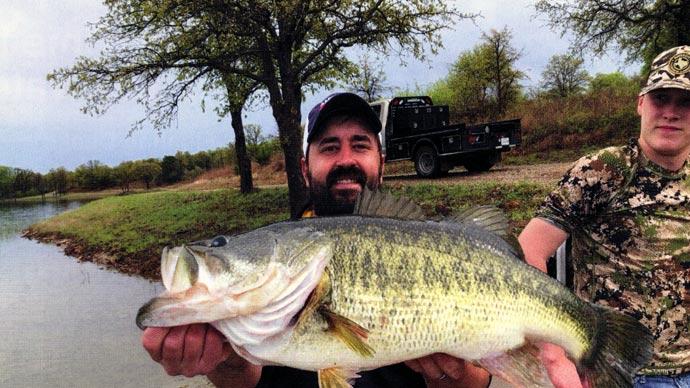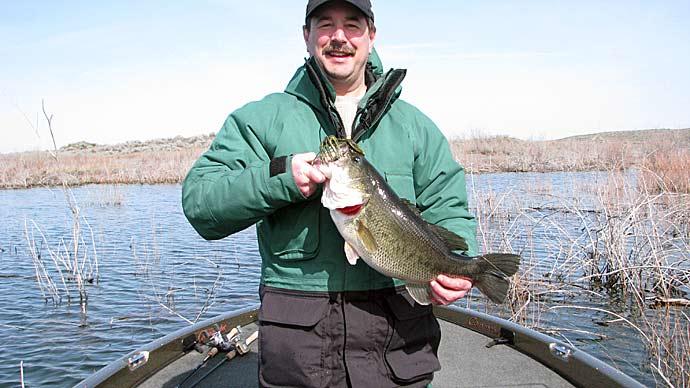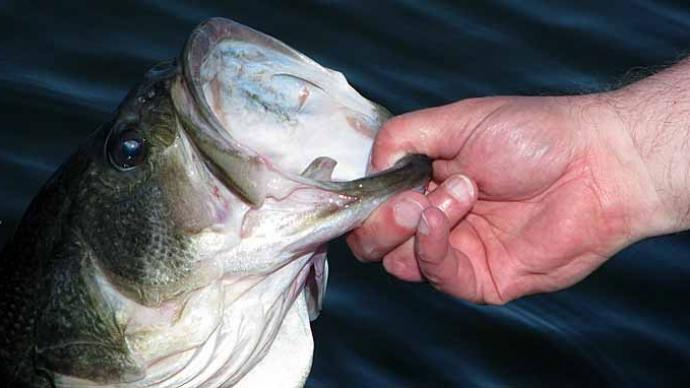
Okay, pondmeisters. You've read, you've studied. The most important steps of managing a pond's fishery are impaled in your brain. The first and foremost principle to understand is habitat. If you don't have the best habitat for the species you choose, they won't thrive. Nothing else you do will matter as much as providing the best habitat, not only for your target species, but for the food chain they need to eat to grow. Speaking of food chain, for most ponds in the United States, the weakest link and most limiting factor is food. For every day a fish doesn't eat, it doesn't grow.
Period.
Why is that important? Because when a fish doesn't eat for a day, that day of growth is lost. Stack too many days with no food and you'll see it at the end of that fish's life. It won't reach its genetic potential. I've seen it over and over. A gorgeous largemouth bass, in its prime, pushing 13 pounds...at 13 years of age. Why didn't that fish grow larger? The main reason is food.
Why did it reach almost 13 pounds?
Because it had the genetic potential, good enough habitat and adequate food to grow so large.
Just how important are the genetics of fish you desire to grow?
Huge. That's how important.
But, there are caveats to genetics, just like everything else. Take the largemouth bass, as a classic example. Florida strain largemouth bass and their genetics are considered the only option to grow bass into double digits. The facts prove it.
Take a look at what the Texas Parks and Wildlife Department has done with their ShareLunker program.
Florida strain largemouth bass were introduced into several private lakes in Texas back in the early 1970's. The state record was broken with a bass caught in private waters, Lake Echo in east Texas. In 1986, that same angler broke his own record with a 15.5 monster bass that still sits at the number 44 slot in the annals of giant Texas bass. Number 44? Number one is an 18.18 hawg caught in Lake Fork by a farmer fishing for crappie in 45 feet of water.
Of 515 bass larger than 13 pounds donated to the ShareLunker program, not one...zero... have been native strains. Slightly more than 50% of those donated fish are pure strain Florida bass, caught in lakes that have less than 10% pure strain Florida genetics. Almost 90% of the general population consists of Fx...Florida genetics that have been crossed, backcrossed and crossed with each other.
With bluegills, coppernose bluegill have been the go-to fish for fisheries managers in the south, genetically speaking. That certainly doesn't mean the native genetics won't grow huge, but it doesn't mean they will, either.
With all things biological, there are caveats.
Most of the time, fish stocked outside their native habitat don't thrive. Certainly there are exceptions, such as Florida bass. Look at California's successes with that fish. Cuba, Costa Rica, Georgia the Carolina's...those state records are Florida bass. Heck, with a few questionable exceptions (like New York) every state with a record into double digits has Florida genetics of some sort. The world record bass, until an angler from Japan tied the record not long ago, came from a backwater lake in Georgia.
But, look at the state record in South Dakota. No Florida genetics there.
Here's the deal. Genetics play a vital role in growing huge fish. But, just because a tiger muskie in an Ohio lake grows to huge sizes doesn't mean someone in Wyoming can have the same results with genetically superior offspring produced in Ohio.
So, what's a pondmeister to do?
Look nearby. See what the results are in similar environments as yours. If you live in Missouri, odds aren't good that Florida bass will thrive there. It gets cold in Missouri. Florida bass don't like cold. Neither do coppernose bluegills.
Native fish are very often the best choice. Take the time to understand the best local genetics before choosing to go find some exotic genes from a hatchery hundreds of miles away.
What about all those crosses you hear about? Some good, some maybe, some not. Let's just stay with the hype and promotional stuff you read and hear about. Success still revolves around habitat and food chain. If you live in Vermont, you definitely won't have the same success stocking those acclaimed hybrids than if you live in Mississippi. That's a habitat and environmental thing.
Are genetics important? Absolutely.
They are a key component in your quest to grow giant fish.
But, just like everything else in this pond management business, you've got to make good choices, based on the best information, based on where you live, based on your goals.
Reprinted with permission from Pond Boss Magazine



